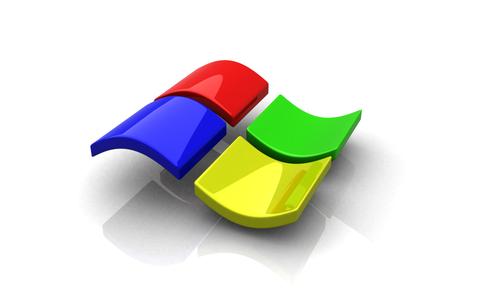 December 27, according to foreign media reports, for Microsoft, 2013 is the year of disaster. Its proud Windows 8 operating system did not gain much traction, and its footsteps into the tablet PC market had no hope of success. It also continued to struggle with mobile phone sales. A lot of disappointments prompted CEO Steve Ballmer to announce that he would resign within 12 months.
December 27, according to foreign media reports, for Microsoft, 2013 is the year of disaster. Its proud Windows 8 operating system did not gain much traction, and its footsteps into the tablet PC market had no hope of success. It also continued to struggle with mobile phone sales. A lot of disappointments prompted CEO Steve Ballmer to announce that he would resign within 12 months. Despite this, Microsoft's share price rose by about 38%
Microsoft's share price performance shows the gap between reality and the market's perception of Microsoft. Judging only from the headlines of the tech media news headlines, people may conclude that Microsoft is in a great deal of trouble. However, analysts said that Microsoft's stock price still has strong corporate business support. Failure to succeed in the retail sector will certainly have some impact, but it will not be enough to damage Microsoft's overall business.
But over time, it will probably ruin Microsoft. Fortunately, Microsoft still has some time to reverse the failure in the retail sector.
Ups and downs
Before discussing the development prospects of Microsoft in 2014, everyone first reviewed Microsoft's past year. In October 2012, Microsoft officially released Windows 8. In the first few weeks, retail sales were very small, although during this period Microsoft announced that it had sold 40 million Windows 8 licenses.
This inconsistency has continued. Microsoft’s December 2012 sales were quite satisfactory, but in April of the following year, market research firm IDC condemned Microsoft and Windows 8 for a 13.9% decline in computer sales in the first quarter. In the fall, Microsoft upgraded Windows 8 to Windows 8.1. This version of the system includes a number of user-desired features, especially the startup key.
At the end of Microsoft’s first fiscal quarter, Surface achieved sales of US$400 million. As of December, Surface 2 sold out at many retail outlets.
In August, Microsoft CEO Steve Ballmer announced that he would resign, and in the previous month he made significant adjustments to the company's management to ensure that 2013 will be seen as a transitional year.
Looking to the future
The future direction of Microsoft will depend largely on its choice of CEO. Ford Motor CEO Alan Mulally, 68, and Satya Nadella, the head of Microsoft's cloud division, are said to be the hottest Microsoft CEO candidates.
The new CEO will have to find a way to free Microsoft from the same fate as the BlackBerry. As the first mobile device manufacturer to be able to send and receive emails securely, the BlackBerry was very popular. However, after Apple released the iPhone in 2007, the BlackBerry plunged into a vortex that slowly took off. This is partly because the iPhone grabs the corporate market. In addition, the advent of this device indicates the arrival of a new era of self-owned equipment, B2B e-commerce model and consumer market.
The US technology blog TechRepublic surveyed more than 1,000 technology executives. The survey results showed that 62% of companies plan to bring their own equipment office by the end of 2013.
Microsoft's initial response to its own equipment office was very slow and flawed. If history has a little guidance, then Microsoft should not repeat the mistakes, but that does not mean that the game is over. In the mid-1990s, Microsoft was hit by the Internet. Its response, "Developing IE Browser and Bundling it with Windows" has been accused by the U.S. Department of Justice as an anti-monopoly, but it has not been criticized for doing no sense.
This time, Microsoft had an unsuccessful start in mobile and tablet computers, but as always it is thinking about ways to turn things around. Although everyone is talking about tablets and mobile devices, having 90% of the desktop market certainly helps Microsoft to turn things around, and the fact that "many actual jobs are still done on computers" will also help.
Microsoft is still very good at daily office applications. In September, Microsoft announced that its cloud-based Office 365 office suite had sales of $1.5 billion. This figure indicates that "Microsoft's momentum is still very strong." According to Kate, an analyst at Forrester Research, Microsoft is packaging itself as a device and service company.
In other words, corporate customers who are deserving of Microsoft's lack of mobile and cloud-based solutions will no longer have a reason to complain.
The possibility of breakthrough
Although Microsoft's corporate business may work well, it still faces many challenges in the retail sector. Sales of Surface and Surface Pro are not good, and Microsoft's Windows Phone operating system is still in the third position away from iOS and Android. The $7.4 billion purchase of Nokia's mobile phone division will likely inject some vitality into Microsoft's laggard handset service, but it will be difficult to see Microsoft replacing Apple or Google in the near future.
Not to mention that Microsoft is in trouble. Thanks to corporate revenue, Microsoft will continue to invest money in consumer products for some time. There is indeed a possibility of breakthroughs in the field of mobile devices. It will also give Microsoft more advantages than its competitors.
2014 is very likely to be another year of rebuilding Microsoft's retail sector. "The fact that Apple seems to be satisfied with making existing products perfect rather than launching bold new products will help Microsoft take action." From a consumer perspective, this is not the most exciting prospect, but it is an ideal environment for Microsoft's slow and stable recovery.
Electric Air Pump For Car Tyres,Small Air Compressor For Car,Electric Air Compressor For Car Tires,In Car Tyre Pump
SHENZHEN SMARTNEWO TECHNOLOGY CO,. LTD , https://www.newopump.com